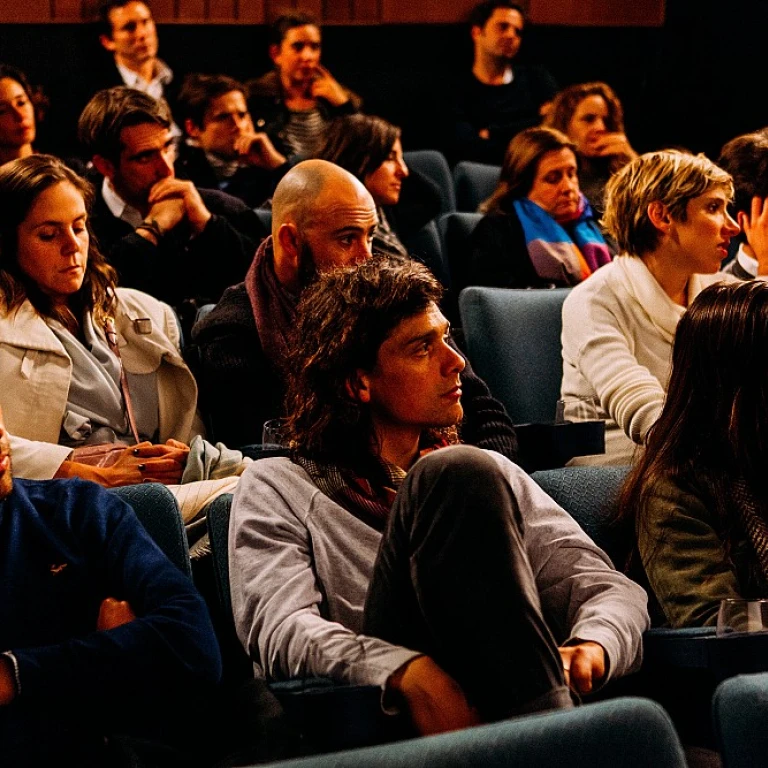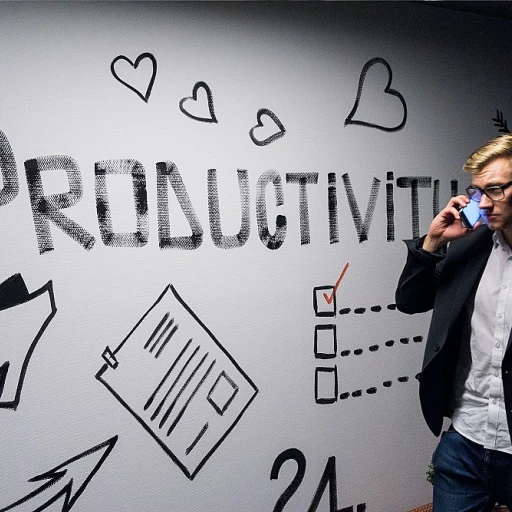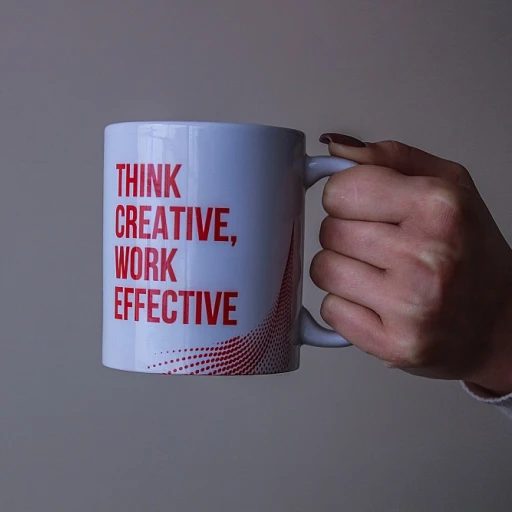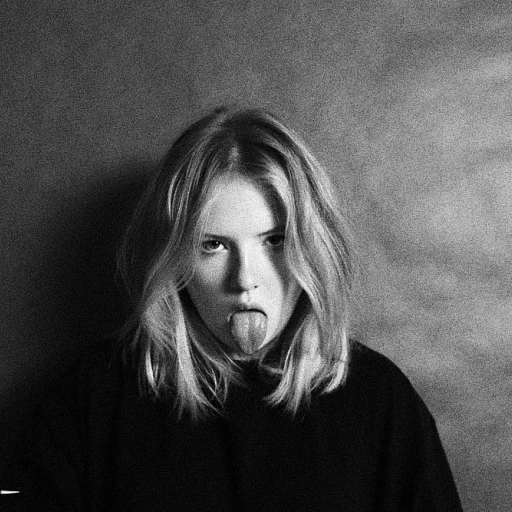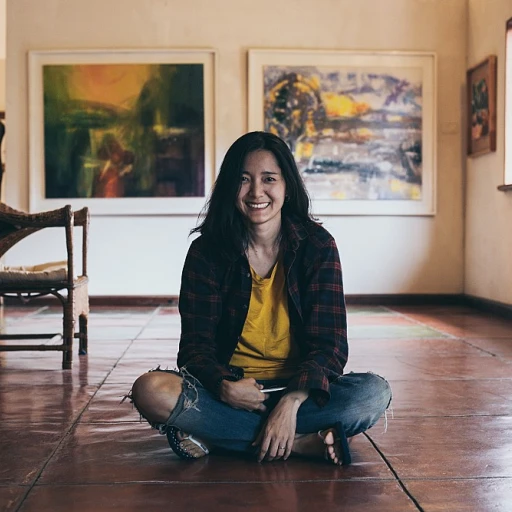
The Power of Creative Questions in Interviews
Unveiling Potential Through Innovative Queries
In the realm of talent acquisition, the standard set of interview questions often falls short in revealing a candidate's true potential. The traditional approach can miss out on uncovering the unique skills and creative thinking that could be the perfect fit for your team and company culture. Enter creative interview questions. These questions are designed not just to assess a candidate's technical abilities but also to gauge their problem-solving skills, adaptability, and ability to think outside the box.
Creative questions help hiring managers understand how a candidate might approach a project or describe a time they overcame a challenge. For example, asking a candidate to solve a hypothetical problem can reveal their problem-solving skills and how they might handle real-world scenarios. This approach can be particularly beneficial when hiring for roles that require innovation and strategic thinking.
Moreover, these unique interview questions can provide insights into how candidates might fit into the company culture. By understanding their thought process and how they approach tasks, you can better determine if they align with the company's values and work environment. This is especially crucial in roles that require collaboration and teamwork.
For those interested in exploring essential questions to ask in specific roles, such as a medical assistant, you can find more tailored guidance here. This resource can help refine your approach to interviewing, ensuring you ask the right questions to discover the best candidates for your team.
Examples of Creative Interview Questions
Exploring the Depths of Candidate Potential
When it comes to the hiring process, traditional interview questions often fall short in revealing a candidate's true potential. This is where creative interview questions come into play, offering a unique lens through which to view a candidate's capabilities and thought processes. These questions are designed to go beyond the surface-level qualifications and delve into a candidate's problem-solving skills, creative thinking, and ability to adapt to new situations.
Examples of Creative Interview Questions
To illustrate the power of creative questions, consider these examples that have been effectively used in various job interviews:
- "Describe a time when you had to solve a problem with limited resources." This question assesses a candidate's problem-solving skills and resourcefulness, crucial for roles that require quick thinking and adaptability.
- "If you could redesign the company culture, what changes would you make?" This question helps evaluate a candidate's understanding of company culture and their ability to think strategically about organizational improvements.
- "Imagine you are a project manager for a team working remotely. How would you ensure effective communication and collaboration?" This question tests a candidate's project management skills and their approach to maintaining team dynamics in a virtual setting.
- "What unique skills can you bring to this role that others may not?" This question allows candidates to highlight their unique strengths and differentiate themselves from other candidates.
These questions not only challenge candidates to think on their feet but also provide valuable insights into their creative and analytical abilities. For more on how these questions can be tailored for specific roles, check out our essential Salesforce interview questions.
Why These Questions Matter
Incorporating such questions into the interview process can significantly enhance the effectiveness of talent acquisition. They help hiring managers identify candidates who not only have the necessary skills but also the potential to grow and innovate within the company. As we explore further, developing your own set of creative questions can tailor the interview to the specific needs of your team and the role in question.
How to Develop Your Own Creative Questions
Unlocking Unique Questions through Creativity
Developing your own set of creative interview questions can provide a window into a candidate's true potential. By steering away from traditional approaches, you can delve deeper into essential qualities such as problem-solving skills, creative thinking, and adaptability. Creating your personalized questions begins with understanding the key skills and attributes required for the job role. Think about a candidate's ability to contribute to your team or tackle unique challenges within your company. Here are key strategies to help formulate effective creative questions:- Focus on the Role: Consider what specific skills and experiences are imperative for the position. For instance, if you're hiring for a project management role, ask candidates to describe a time they handled a difficult project. This allows you to gauge their project management skills and experience.
- Assess Cultural Fit: Ensure your questions reflect the company culture. Questions that require candidates to envision themselves in common situations or company projects can be insightful. For instance, asking how they would handle a teammate's last-minute request when the workload is high reflects both problem-solving skills and cultural adaptability.
- Encourage Creative Thinking: Pose questions that induce creative responses, such as "If you could redesign any product at our company, which would it be and why?" This question not only evaluates creative thinking but also shows the candidate's interest in your products.
Evaluating Responses to Creative Questions
Analyzing Responses to Unlock Potential
Evaluating responses to creative interview questions requires a nuanced approach. Since these questions diverge from traditional interview inquiries, your evaluation criteria should be equally imaginative yet rooted in key competencies and desired qualities for the role and company culture.- Assess Creative Thinking: Look at how the candidate's answer demonstrates their ability to think outside the box. Do they present a unique solution or perspective that aligns with the job and reflects their creative thinking skills? This can be crucial in roles that demand innovation and problem-solving aptitude.
- Evaluate Problem-Solving Skills: Consider how effectively the candidate identifies a problem within the scenario and outlines a strategic solution. Their ability to break down complex situations showcases their project management and solving skills.
- Alignment with Company Values: Does their response resonate with your company's values and objectives? An answer revealing a candidate's understanding of your company culture can indicate how well they will integrate and collaborate within the team.
- Communication and Articulation: Pay close attention to how candidates articulate their thoughts. Clear and concise communication can signify a candidate’s ability to convey ideas effectively, an essential skill in any job.
- Focus on Relevant Experiences: Did the candidate provide examples that connect past experiences to the creative question's context? Describing a time when they successfully conquered a challenge using creativity can highlight transferable skills critical for the role.
Challenges and Considerations
Complexities and Considerations in Crafting Creative Queries
While creative interview questions can unveil a candidate's potential, they come with their own set of challenges. It's essential to recognize that not all candidates might be comfortable with unconventional questions, which can sometimes make it difficult to judge their true abilities.
Consider the company culture when crafting these questions. A question that might be suitable for a tech startup with a dynamic work environment may not resonate with candidates applying to more traditional roles. Understanding the cultural context is crucial to ensure that the questions align well with the job and the company.
Balancing creativity with relevance is another aspect to keep in mind. A creative question must still relate back to the role or skills required. It’s crucial to make sure that your question doesn't feel out of place or unnecessary. For instance, asking a question about project management in a non-relevant context could confuse rather than reveal a candidate's problem-solving skills.
Avoid overloading candidates with too many unique questions, which might overwhelm them and hinder their ability to provide thoughtful responses. Prioritize depth over breadth; focusing on a few well-thought-out questions can lead to a more meaningful understanding of the candidate's potential.
Additionally, time management during the interview is essential. Creative questions often require more time for candidates to formulate their responses. Be sure to allocate sufficient time for candidates to express their thoughts without feeling rushed.
In conclusion, while integrating creative questions can enhance the hiring process, it’s important to evaluate whether each question genuinely contributes to understanding the candidate’s suitability for the role. Consider exploring these aspects further in your hiring strategy by understanding the nuances involved.
Success Stories from Creative Interviewing
Lessons from Successful Creative Interviews
Integrating creative interview questions has proven beneficial for several companies across varied industries, uncovering candidates' true potential and ensuring cultural fit. Here are some real-world examples where unconventional questions played a crucial role in successful hires.
One tech company faced challenges in talent acquisition for a project management role. Traditional interview methods weren't yielding candidates who could navigate the fast-paced, problem-solving environment integral to their company culture. By incorporating creative questions focused on problem-solving and creative thinking, the company was able to gauge candidates' real-time decision-making and project management skills.
In another instance, a healthcare organization used unique interview questions to identify candidates' abilities beyond their resumes. This involved asking them to describe a time when they overcame a challenging situation in a team. Through their answers, the candidates revealed their soft skills and adaptability—key components for the job—which ultimately helped identify standout candidates who excelled in the role and contributed positively to the company culture.
Moreover, a marketing firm searching for candidates with unique creative abilities shifted its focus toward asking questions that required candidates to innovate on the spot. Questions that required them to outline a marketing strategy for a hypothetical product allowed the firm to evaluate candidates' creative solutions within a time constraint. This method led to hiring decisions that delivered fresh, innovative strategies, driving the company's success.
These success stories illustrate how tailored creative interview questions can significantly enhance the hiring process, aligning candidates' skills and personalities with the company's goals and culture. Companies seeking to refine their hiring practices can take cues from these examples to create impactful, unconventional interview questions that address their unique needs.

